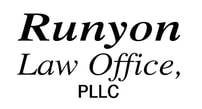Know Your Family Responsibilities
Let's take the child's situation first, because that's the easiest one. If the child is a minor (under 18 years of age), you're definitely going to be held responsible for the obligations related to the child's care. With authority over the child comes responsibility for the child.
So what about your spouse's bills? Using the ancient doctrine of "necessaries", the New Hampshire Supreme Court has pretty recently confirmed that based on the marriage contract, "both husbands and wives must pay for debts for the basic necessities of the other spouse if the spouse is unable to pay her or his bills, including medical, hospital and nursing home bills." Apparently, those wedding vows about "in sickness and in health" are more than old-fashioned window dressing, at least in New Hampshire. And that's consistent with the Medicaid requirement that both spouses' assets get lumped together to determine the amount that needs to be "spent down" before either one of them can qualify for government assistance with nursing home bills.
Now don't get me wrong. I'm not advocating for what used to be called "living in sin", but there's definitely an advantage for unmarried partners when it comes to liability for medical and nursing home bills. That "unaffiliated" status, shall we say, would also keep the assets of the healthy partner from being dragged into the calculations of the nursing home partner's eligibility for Medicaid. That may not be much of a consideration for young people still in child-bearing mode, but it's often a serious issue when more senior singles are deciding whether to tie the knot. Often, too, that knot is a second one - which is why the children from a prior marriage frequently have strong views on the subject of exposing their inheritance to the nursing home expenses of a new spouse. And unfortunately, even a pre-nuptial agreement, which is a good idea for protecting the children's inheritance from the new spouse's claims, won't keep those assets from being claimed to pay his or her nursing home expenses.
OK, then what about a child's responsibility for the medical and nursing home expenses of a parent? That's called "filial responsibility" in legal jargon, and it's been a murky area in many states. Fortunately this time, in New Hampshire there's new law that eliminates that potential responsibility - but be careful. If a child misuses the parent's assets, so they're not available to pay the bills, or if the child fails to apply for Medicaid benefits once the parent runs out of money, the child can still be held responsible for negligent management of the situation.
Be careful, too, about those forms you're asked to sign when checking a parent into a care facility. They often say you're signing as the "responsible party", but what does that really mean? Are you just agreeing to be the contact person in the event of emergency, or are you committing to be responsible for payment of the bills if mom's or dad's funds run dry? It's really important to inquire about that - and then to get the clarification in writing - so you'll have something tangible to pull out when the bills start arriving with your name on them.
By the way, the new law I mentioned also relieves parents from liability for the medical bills of their adult children (18 and older), subject to the same requirements of reasonable care I described above if you're handling the finances for a son or daughter who may still be in school, for example.
The bottom line is that paying your own medical bills - even what's left after insurance does its part - is challenging enough. If we can also help with other family members' bills, that's going to be a tremendous relief to them, but having it be a voluntary decision instead of a legal obligation would make it a lot better.
